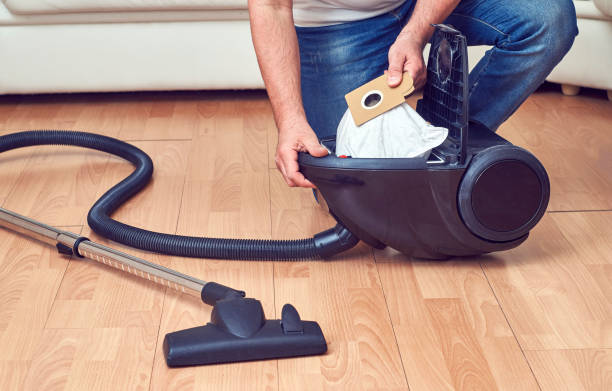Replacing your flooring can improve both the look and use of your living area, making it a substantial home improvement effort. Picking the best flooring contractor is an important step in the process of picking the correct flooring material, yet it is sometimes overlooked. The contractor’s knowledge and abilities can significantly affect how your project turns out. We will go over the most important things to think about when choosing a Flooring contractor for your replacement needs in this extensive guide, giving you the knowledge you need to make an informed choice.
The Role of a Flooring Contractor
It’s critical to comprehend the function of a flooring contractor and the reasons their experience is crucial for your job before we get into the selection process. A specialist in the installation, maintenance, and replacement of diverse flooring materials such as hardwood, laminate, carpet, tile, vinyl, and more is known as a flooring contractor.
The following are possible duties of a flooring contractor:
Subfloor Preparation: Ensuring that the subfloor is properly prepared to receive the new flooring material This may involve leveling, moisture testing, and addressing any structural issues.
Material Selection: Providing guidance on choosing the right flooring material that suits your needs, budget, and style preferences
Installation: expertly installing the chosen Flooring material, ensuring a precise fit and a flawless finish.
Finishing and Detail Work: Completing finishing touches such as baseboards, transitions, and trim work to create a polished and professional appearance
Repair and Maintenance: Offering repair services for existing flooring and providing maintenance advice to extend the life of your floors
Customization: handling custom flooring projects, including intricate patterns or designs, to create unique and personalized flooring solutions.
Important Things to Take Into Account Before Hiring a Flooring Contractor
Now that we know how important a flooring contractor is, let’s look at the main aspects to take into account when choosing the right contractor for your replacement needs:
1. Licensing and Insurance:
Licensing: Verify that the contractor is licensed to perform flooring work in your area. Licensing requirements can vary, so it’s important to ensure they meet legal and regulatory standards.
Insurance: A reputable flooring contractor should have liability insurance to protect you and your property in case of accidents or damage during the project.
2. Knowledge and Proficiency:
Experience in the Industry: Seek out contractors who have a solid track record and a wealth of knowledge in the flooring sector. A more seasoned contractor is more likely to produce excellent work.
3. Portfolio and References:
Portfolio: Review the contractor’s portfolio of past projects to gauge the quality of their work and their ability to handle various flooring materials.
References: Ask for references from past clients and contact them to inquire about their experience working with the contractor.
4. Transparent Pricing:
Detailed Quotes: Request detailed quotes from potential contractors, including a breakdown of costs for materials, labor, and any additional services.
Hidden Costs: Ensure that the contractor is transparent about any potential hidden costs that may arise during the project.
5. Material Knowledge:
Product Knowledge: A flooring contractor needs to be well-versed in the benefits, drawbacks, and appropriate applications of different flooring materials.
Material Suggestions: Consult a professional for advice on the best flooring material for your particular requirements and financial situation.
6. Workmanship Warranty:
Warranty: Find out if the contractor is offering a workmanship warranty. A trustworthy contractor needs to guarantee their work and be prepared to handle any problems that may arise after installation.
7. Subfloor preparation:
Subfloor Assessment: The contractor should assess the condition of your existing subfloor and address any issues, such as leveling or moisture concerns, before proceeding with the installation.
8. Customization and Design Expertise:
Custom Projects: If you have specific design or customization requirements, ensure that the contractor has experience handling custom flooring projects.
9. Communication and Customer Service:
Communication: The contractor should be responsive to your inquiries and communicate effectively throughout the project, addressing any questions or concerns.
Professionalism: Assess the professionalism of the contractor, including their punctuality, reliability, and courteousness.
10. Permits and Regulations:
Permit Handling: Verify whether the contractor will obtain any necessary permits for the project and ensure compliance with local regulations.
11. Quality of Tools and Equipment:
Tools and Equipment: High-quality tools and equipment are essential for achieving precise and professional results. Inquire about the contractor’s equipment and their maintenance practices.
12. Project Timeline:
Timeline: Discuss the expected timeline for the project. A reliable contractor should provide a realistic schedule for completion.
13. Payment Terms:
Payment Plan: Establish clear payment terms in the contract, including the initial deposit, progress payments, and the final payment upon project completion.
14. Industry Affiliations:
Affiliations: Contractors who are members of industry associations or groups may be more committed to adhering to professional standards and best practices.
The Selection Process
Now that you’re armed with the key factors to consider when choosing a flooring contractor, let’s outline the step-by-step selection process:
1. Research:
Begin by conducting research to identify potential flooring contractors in your area. Online resources, directories, and recommendations from friends and family can help create a list of candidates.
2. Initial Contact:
Contact each potential contractor to inquire about their availability and discuss your project requirements.
3. Consultations:
Schedule consultations with several contractors to discuss your project in detail. During these consultations, assess their expertise, communication skills, and professionalism.
4. Portfolio and References:
Review the portfolios and references of the contractors to evaluate the quality of their work and their client satisfaction.
5. Transparent Quotes:
Request detailed quotes from the contractors, ensuring that all costs and potential additional expenses are clearly outlined.
6. Material Recommendations:
Evaluate the contractor’s recommendations regarding the choice of flooring material and their reasoning behind the suggestions.
7. Licensing and Insurance:
Verify the contractor’s licensing and insurance status to ensure they meet legal and safety requirements.
8. Workmanship Warranty:
Discuss the workmanship warranty offered by each contractor and compare their terms.
9. Subfloor Assessment:
Inquire about the contractor’s approach to subfloor assessment and preparation.
10. Final Selection:
Choose the contractor who most closely matches your project’s needs, budget, and expectations based on the previously listed aspects as well as your overall opinion.
Conclusion
A crucial first step in guaranteeing the success of your flooring project is selecting the right flooring contractor for your replacement needs. The proper contractor will improve the overall appearance and use of your home with skill, high-quality work, and professionalism, all of which will translate into a stunning and long-lasting floor.
You can choose a flooring contractor with confidence if you take into account aspects like licensing, expertise, references, price, material knowledge, and workmanship warranty. An intelligent contractor will not just




